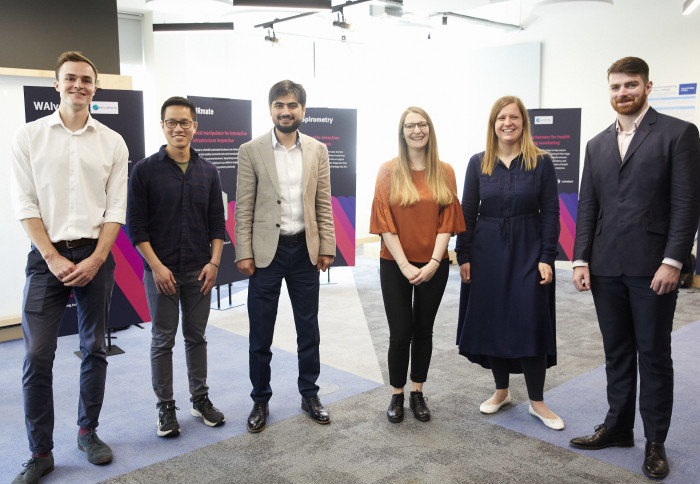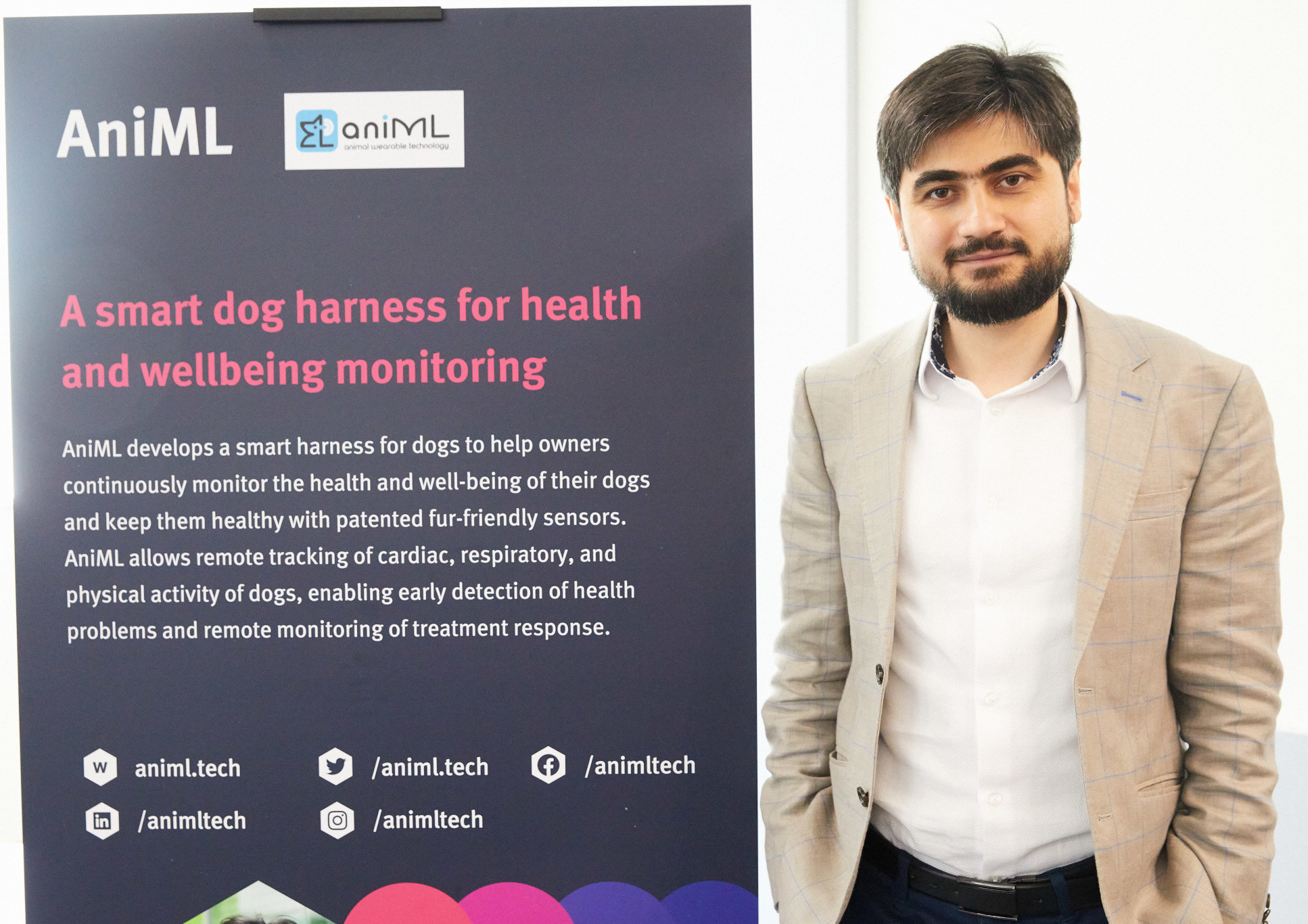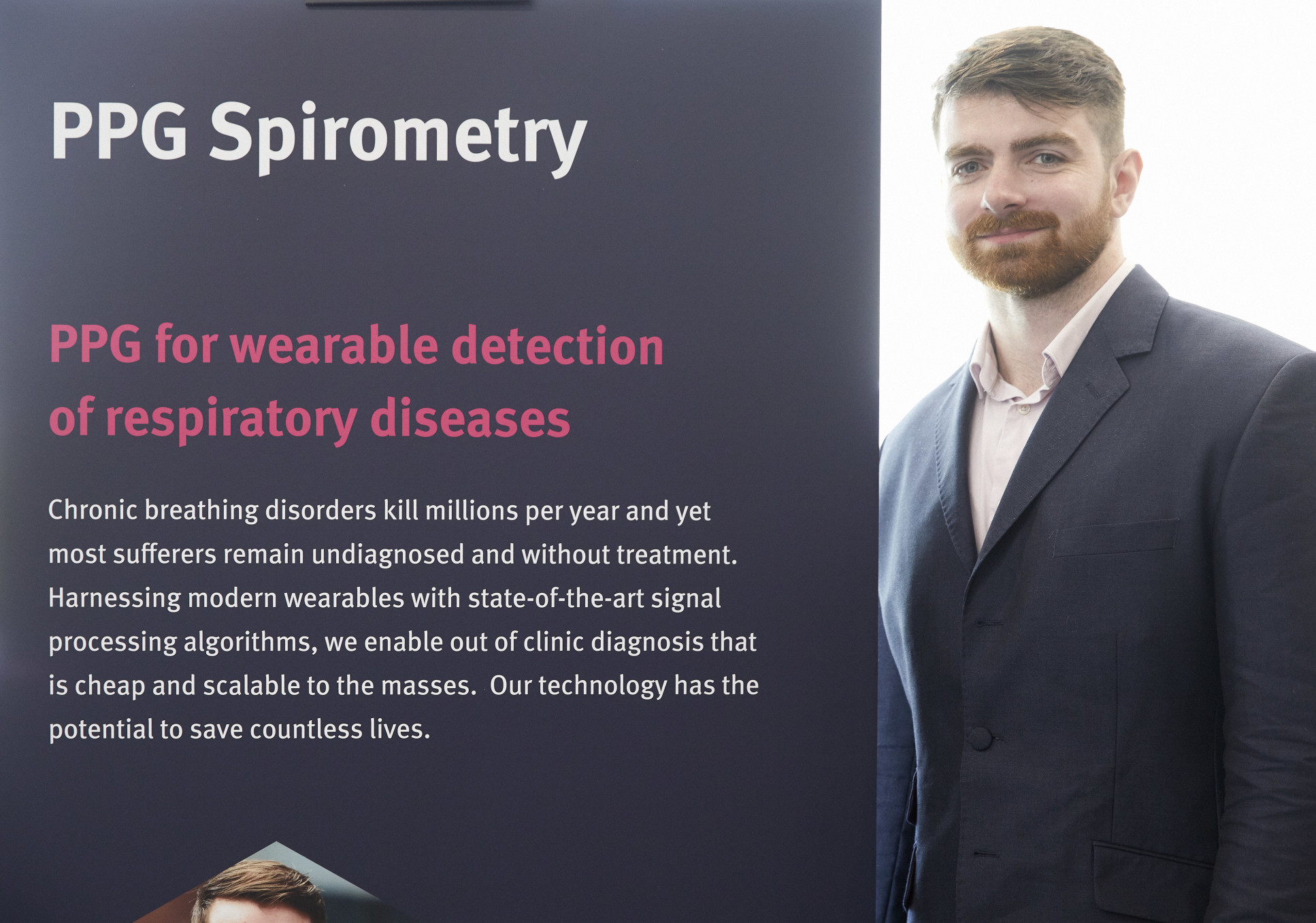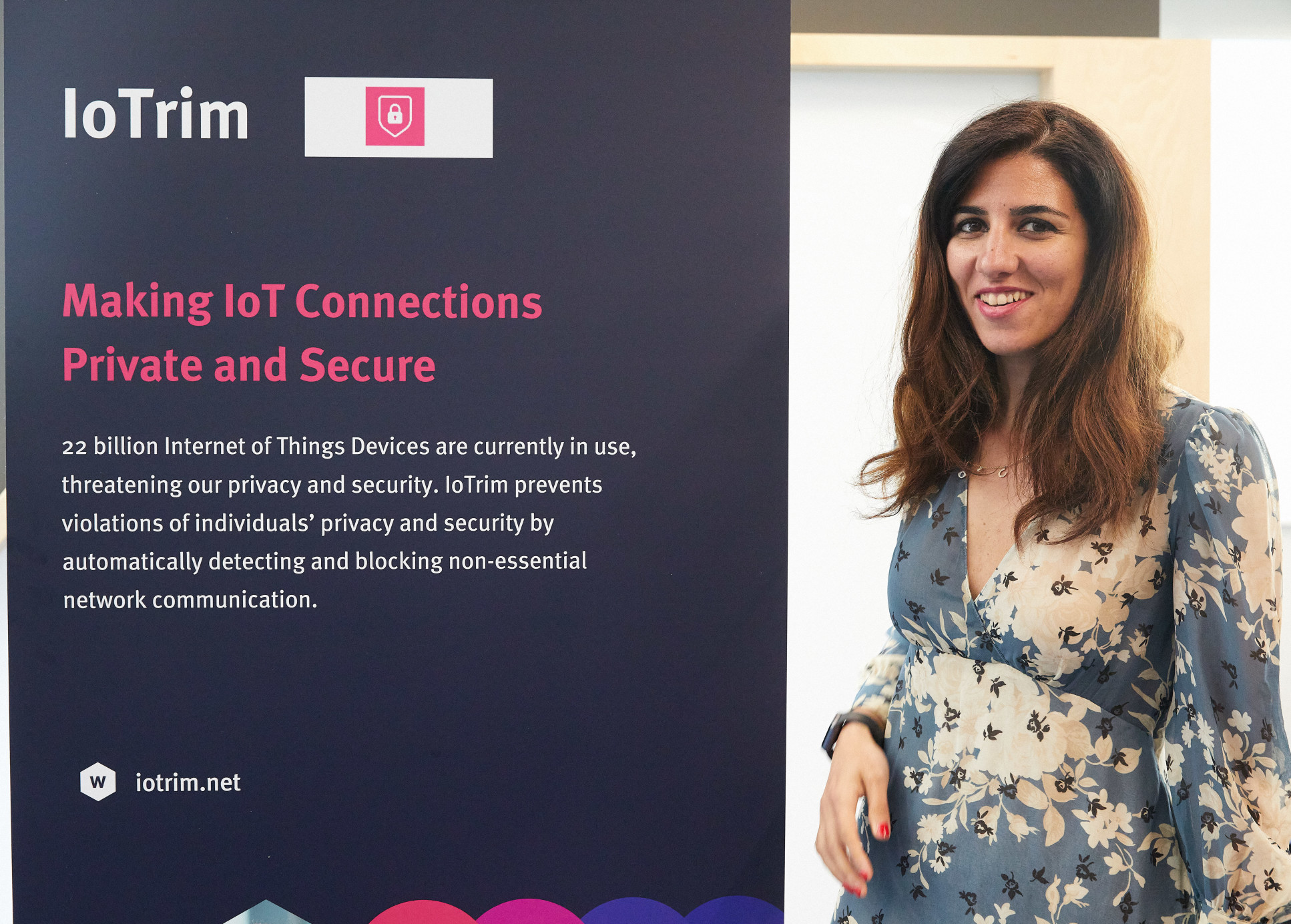Product meets customer: Imperial founders adapt business models to market needs

Startup founders from Imperial have revealed the key changes they made to their business models after embarking on a journey of customer discovery.
In addition to helping us understand the world, university research can often be translated into new technologies that address real-world problems in areas such as clean energy and healthcare. Across Imperial, hundreds of entrepreneurial researchers and students are using startup companies as vehicles for turning their insights into useful new products and services.
One stumbling block in the process of research commercialisation is the need to ensure products, services and business models address a real market need and are commercially viable.
We set up interviews with major ISPs and discovered there is opportunity not only for consumers but industry customers. Dr Anna Maria Mandalari
While entrepreneurial researchers generally start with a broad understanding of how their technologies can be used to solve a real-world problem, they often find that conversations with potential customers and industry experts can help considerably sharpen their product-market fit and make an informed choice, for example, between B2B and B2C business models.
Imperial’s Techcelerate programme, one of several entrepreneurship programmes at the College, offers founders support to carry out an intensive customer discovery phase that helps them to evolve their offers and become stronger propositions for customers and investors.
Imperial ventures evolve their offers
At a showcase event this month, several founders from the most recent cohort of Techcelerate talked a live audience at Scale Space in White City through their technologies and some of the changes they have made after talking to potential customers.
AniML

AniML is developing a wearable sensing technology to help track the health of pet dogs. Co-founder Dr Yasin Cotur, a research associate in the Department of Bioengineering, said: “We started customer discovery with the assumption that owners want to keep dogs healthy, need effective diagnosis, and worry about behaviour of dogs. In testing assumptions, we interviewed 25 pet owners, met ten pet care companies and three insurers. We recognised that health and insurance companies need remote check-up and treatment monitoring systems. As a go-to-market strategy, we now plan to offer a premium product for vets.”
PPG Spirometry
PPG Spirometry is developing a scalable and cost-effective wearable technology for monitoring signs of chronic obstructive pulmonary disease, the third leading cause of death worldwide. Co-founder Harry Davies, a PhD student in the Department of Electrical and Electronic Engineering, commented that there are currently a range of smart watch-connected consumer products for monitoring heart health but not many for monitoring lung health.
By talking to industry experts, he also discovered a potential demand for the technology by clinicians. “We spoke to many key players and small companies and received a lot of positive interest. The next question was clinical value – we spoke to clinicians across the world and arrived at the conclusion it could help them monitor exacerbation of lung disease. Patenting is in progress and we aim to develop licensing deals. Hopefully we can revolutionise the monitoring of lung disease and save many lives.”
IoTrim
IoTrim is offering a technology to detect and block unusual internet activity that could help strengthen the security and privacy of personal data in Internet of Things (IoT) devices such as networked fridges and doorbells – an important concern as IoT becomes more prevalent.
The founders were initially interested in IoT users, but during customer discovery became interested in licensing the technology to industry. Co-founder Dr Anna Maria Mandalari, a research associate in the Institute for Security Science & Technology, said: “During Techcelerate we were able to asses our market. There are 10,000 ISPs in the world. Reaching 1% of the subscribers from one ISP would give us initial revenue of £1 million. We set up interviews with potential [major ISP] customers and discovered there is opportunity not only for IoT users but IoT industry customers. We’re also in touch with other stakeholders such as data protection regulators."
Other founders who presented at the showcase included Alicia Blatiak, a PhD student in the Department of Electrical and Electronic Engineering whose startup IngridAI is developing a software solution to schedule charging for fleets of electric vehicles; Dr Daniel Lucy, a researcher in the Department of Chemistry who has co-founded a venture to develop fluorescent probes that could enable more accurate surgery; and Tze-Yang Tung, a PhD student in the Department of Electrical and Electronic Engineering and co-founder of WAIveform, which is developing an efficient wireless video streaming technology for drones.
Hypothesis-driven learning
Ben Mumby-Croft, Director of Entrepreneurship at Imperial College London, said: “At Imperial we believe that the best way to teach entrepreneurial skills is through hypothesis-based experiential learning, and Techcelerate is a fantastic example of this approach. The programme helps participants to answer the question: 'Do I have a solution that customers actually want and will pay for?'. We do this by teaching customer interview skills and how to design business experiments. It’s been fantastic watching the teams ‘get out of the building’ and generate their own data through in-depth customer discovery. They have all made amazing progress in a short period of time and I look forward to seeing what they all go on to achieve next.”
The programme helps participants answer the question: Do I have a solution that customers actually want and will pay for? Ben Mumby-Croft
The programme is one part of an expanding ecosystem of innovative research, startup companies, and entrepreneurship support infrastructure hosted at Imperial at various locations.
Much of this activity takes place at the College’s newest campus in White City, at the heart of the new White City Innovation District.
Article text (excluding photos or graphics) © Imperial College London.
Photos and graphics subject to third party copyright used with permission or © Imperial College London.
Reporter
David Silverman
Communications Division

